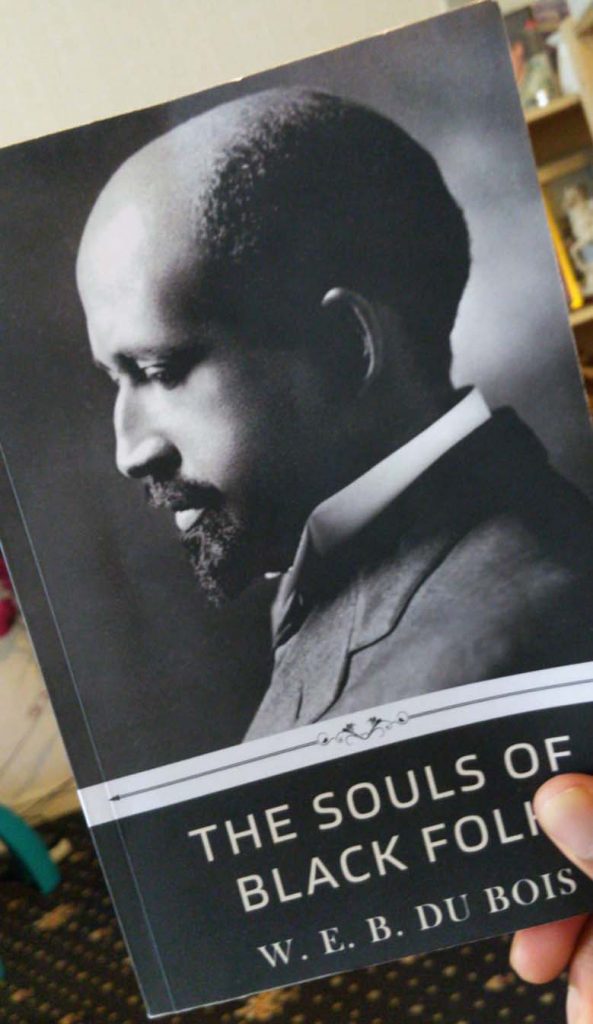“The masters and the masters’ sons have never been able to see why the Negro, instead of settling down to be day labourers for bread and clothes, are infected with a silky desire to rise in the world.”
As mentioned previously, I purposely focus on Black British writers and writers of African descent, but I do make exceptions. This is one of them.
The reason being is because this is a book and a writer who has frequently been cited as a must-read in many write-ups from established authors such as Alex Wheatle (East of Acre Lane) and Ibram. X. Kendi (How to be Anti-Racist).
I’ve read many books from yesteryear on the subject of race, and it is a real eye-opener.
The topics in which they speak about and their optimism for the future is very similar to what people are saying today, but just said differently.
Whilst reading this, I was constantly thinking, although things have changed on the surface, what about mindset?
Looking at the opening quote, now that Black people have acquired bread and clothes and have a higher status in the world today, we are aspiring for top jobs in all industries.
However, there is still a glass ceiling blocking our development.
Although I haven’t come across any direct quotes, I still believe that there are factions within society who believe that Black people have reached their level and are blocking our advancement.
I say this with my chest because I am yet to see real change being done by the British Government to create schemes to aid advancement.
Such schemes are being created by Black people (and advocates) who have attained a level of power within society and use it positively to better their network and community.
Anyway, back to the book…
The book opens by giving you a time frame of when the book is set: 1861 – 1872.
This is prevalent as Du Bois comments on the attitude of the American people pre and post the American Civil War (1861 – 65).
We begin to hear about what the Americans plan to do with the free negroes after the Civil War.
The Union Army (the North) had free African Americans in their ranks, as well as taking in African American men who had escaped slavery from the Confederate Army (the South).
Abolitionist, Frederick Douglass encouraged Black men to enlist in the army as this would aid them in their fight for full emancipation.
Not only this, but distinguished gentlemen across the North began to write the President appealing that the freedmen were dealt with humanely and judiciously after the war now they were emancipated.
Things were beginning to look up for the emancipated negro.
In May 1865, legislation was passed which on paper looked like the Americans were actually giving negroes equal rights.
As the years progress, the Americans show promise. They show promise of allowing the freedmen equal rights, a right to their own land, a right to education – great American colleges such as Howard were born out of this period.
On the flip side, there were many obstacles in the way of the freedmen being truly emancipated.
The majority of this opposition still coming from the south who felt that the emancipation was unjust and the Negro should never have been freed.
“The opposition to Negro education in the South was at first bitter, and showed itself in ashes, insult, and blood; for the South believed an educated Negro to be a dangerous Negro.”
Early on in the book, we read about Booker T Washington. We read what he is doing in the fight for equality and emancipation.
His ‘schemes’ were supported by some (both black and white) from the north and even some white southerners.
However, there was also opposition to what he was proposing from white people and (I felt) surprisingly from black folk (as they are described) too.
Booker T received opposition from the black folk because they felt he was compromising too much with their supposed freedom in order to meet the white man in the middle.
However, after seeing that this negotiation tact was working, the criticism from the Black folk began to fall silent.
This chapter also births the phrase ‘people of colour’. Throughout my reading (to date), this is the first reference to this phrase, first coined in 1830.
This is how learned men such as Du Bois (himself), Shad of Wilmington, and others wanted to be referred as opposed to Negroes.
My favourite chapter is chapter 4. We get to hear more about Du Bois’ background. He describes his first appointment as a teacher, whilst also narrating how he taught whole families too, not just children.
Segregation
Although hearing about the horrors of segregation, he details the strength of the Black folk by detailing how they made best out of their situation. After negotiating their right to teach, they built their own schools and classrooms.
One point which I found extraordinary was that in some American towns, there were literal lines drawn through in order to separate Blacks from the whites.
Black and white people never cohabited with each other, and while you would never find a Black household in a white area, it was common to find a white slum amongst the Black community.
Thinking about the hierarchy in those times is nuts. While the white, upper class wouldn’t cohabit with their Black counterparts, the low-class white people would indeed live amongst Black people.
This evokes memories of the book ‘To kill a Mockingbird’; although their was a white lower class, who were looked down upon by the community, they were still white. Even if they were deemed degenerates, they were still considered ‘better’ than all Black people and would be believed should they feel the need to accuse a Black person of a crime.
When strategizing how black people should behave in order to continue progression following the civil war, he mentions things that I find myself doing even now (in 2020) which suggest ideals and the situation hasn’t changed that much.
“Today the young Negro of the South who would succeed cannot be frank and outspoken, honest and self-assertive, but rather he is daily tempted to be silent…
He must not criticise, he must not complain. Patience, humility, and adroitness must, in these growing black youth replace impulse, manliness, and courage. With this sacrifice, there is an economic opening, and perhaps peace and some prosperity.”
As a Black man, this is how one must act today in order not to be typecast as aggressive, and any other racial stigma attached to the colour of my skin.
So again, although things have changed on the surface, what about mindset?
#Adeptales #SoAdept #BookReview #BlackMenread #CivilWar #America #Race #Racism #Segregation #FrederickDouglass #AlexWheatle #IbraXKendi #BritishGovernment #Britain #TheSoulsOfBlackFolk #BookerTWashington
#WEBDuBois





